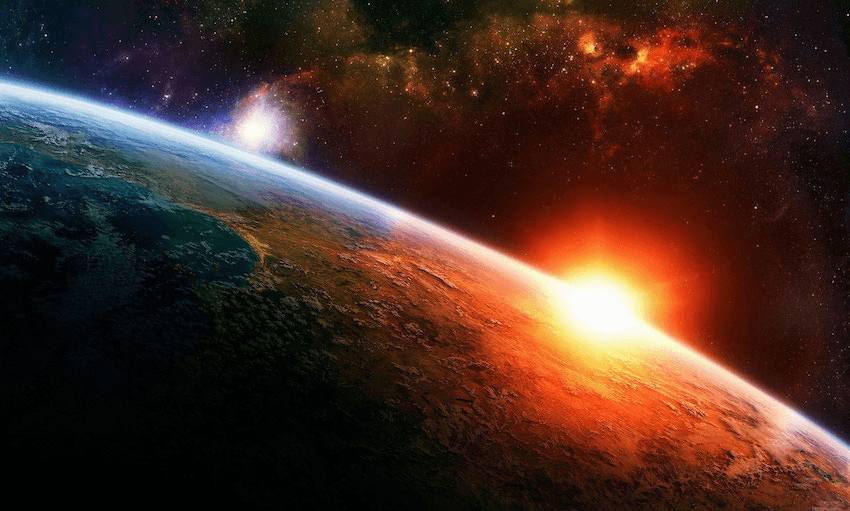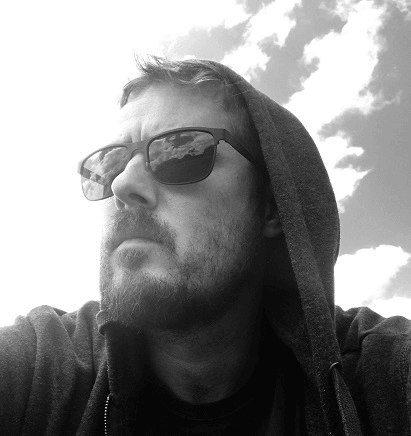Fears are growing about the seemingly unstoppable descent into alt-right radicalisation many young men are falling into. A visiting expert says it doesn’t have to be like that, reports Sophie Bateman.
Since the Christchurch mosque attacks, a number of urgent changes have been made in New Zealand: semi-automatic weapons have been banned, media guidelines for reporting terrorism have been updated – and people are finally taking the threat of online far-right radicalisation seriously.
Before March 15, most of us were blissfully unaware of the darkest corners of the internet. But now a whole host of phrases and imagery – and the violent ideology behind them – are grimly familiar to us all. The 8chan logo. The finger and thumb curled into an ‘OK’ symbol, a blur in courtroom footage. The phrase “Subscribe to PewDiePie”.
Everyone is desperate to understand the surreal and many-layered world that can poison a mind. Media outlets have run countless articles dedicated to decoding memes and explaining how anonymous message boards work, alongside profiles of prominent neo-fascists.
For four months now, the country and wider world have been trying to work out what it all means to prevent it from happening again. In an Auckland University lecture theatre on Monday evening, a crowd gathered to hear the insights of someone who’s made it their business to figure it out.
Hailing from the Arizonan borderland of immigrant detainment camps and roaming paramilitary militias, Emmi Bevensee has witnessed firsthand the alarming re-emergence of American fascism – and their doctoral research is dedicated to how it happened.
To help make sense of the chaotic dynamic we’re navigating, Bevensee says we should think of the current global resurgence of fascism as the latest wave of many throughout history.
“Fascism tends to gather power, then people realise it doesn’t make the trains run on time and it falls into disfavour,” they say. “How bad does it get during that period is what we have to figure out.”
The room Bevensee addresses is charged with the kind of electricity that only comes from fervent engagement with the topic at hand. There are nods and sighs, chuckles and groans from around the room at each mention of Pepe and Kekistan and Richard Spencer. This is an internet-literate (mostly) young audience well-versed in the minutiae of the far-right technosphere. What they need to know is how these memes can form the stepping stones to mass violence.
Bevensee theorises online extremists are trying to “shift the Overton window” – the realm of acceptable public discourse – to the right. Edgy jokes are a strategy to push the boundaries of acceptability under the guise of facetiousness.
It’s a “malicious form of cheekiness”, they say, a world apart from the “naughtiness” Arundhati Roy discussed at the Auckland Writers Festival the previous week. Whereas the Indian polemicist’s playful political activism challenges the status quo, the online right’s sense of mischief seeks to preserve it while maintaining its paradoxical self-image as a disruptive punk movement.
In his 2004 book The Anatomy of Fascism, historian Robert Paxton defines fascism as “Dictatorship against the Left amidst popular enthusiasm…” The rapid growth of progressive social movements advancing the rights of the marginalised (in turn helped along by the internet) has generated a counter-movement made up almost entirely of straight white men.
Why is this particular demographic, which has enjoyed the lion’s share of cultural and political power in the western world for centuries, so vulnerable to extremism?
“You have a lot of people for the first time experiencing a much less extreme mirror of the alienation that marginalised people feel,” Bevensee explains. “If you have someone who’s never been a minority in their life, for the first time feeling like ‘Oh my God, I’m unwelcome in this space’, or ‘I am not able to dominate this space in the way I’m used to’, that can feel like being affronted.”
So how can the left fight fascism and entice away its potential recruits? By embracing radical niceness and empathy, an inherently anti-fascist notion. The trouble is, Bevensee explains, that’s just not as appealing as the transgressive delight of being in on an edgy joke.
“Unfortunately empathy is very cheesy. It’s so true that it’s obvious, and in its obviousness it’s very uncool to say out loud because everyone knows it. It’s not a viral meme in the way edgy irony is. Bitter, detached irony has this quality of ‘I’ve seen some great mystery I can show you, that’s why I’m so dark and can play this game’. It’s almost like a cult, I have access to this hidden wisdom but I don’t even care.”
Unlike ISIS propaganda which sells recruits a utopian vision of happiness under a radical Islamic caliphate, the far-right sucks people in by feeding into their melancholy and discouraging hope. Someone locked in a hardened shell of loneliness will likely find this brand of cynicism relatable – but the far-right hardly has a monopoly on misery.
“It’s not like leftist communities are all kittens and rainbows,” Bevensee says. “We’re all struggling, we’re all experiencing existential dread. We’re all horrified at the state of the world, climate change. That’s why people get into movements, whether far right or left. So it’s not as if we don’t have access to that darkness, we’re just seeing that nihilism and saying ‘Okay that’s a part of reality, but I want to hope for something better’ or ‘I want to try to make something better’. And even if it’s hard, in that experience we’ll learn a lot and build social fabric and experience new better forms of being in interaction with each other.
“And that’s quite powerful. It’s quite beautiful. But it’s hard to condense. It’s not a meme in the same way. It’s not simple. Fascism is good in that it has hot takes, one liners you can just throw out. It appeals to a lot of human things like condescension, which is very emotionally satisfying.”
They say someone who embraces the far-right isn’t just a danger to the marginalised members of their community, but to themselves.
“Appealing to those dark drives, while it has that viral quality, it destroys the host. You just go further and further into feeding that part of you that wants to dominate other people. It’s a corrosive force. So we have to learn how to healthfully engage with it.”
It’s crucial for people to recognise when a friend or relative crosses over from healthy intellectual curiosity into embracing a violent ideology. But that’s easier said than done. It’s impossible to say for certain that a teenage boy who watches a few Jordan Peterson videos is going to make the leap to Steven Crowder to Stefan Molyneux to Stormfront, but there is a clear pathway laid out for him thanks to the YouTube algorithm.
Bevensee says it’s common to watch someone creep “further and further through the curiosity lens” into full-blown white nationalism, but only those close to that person have the ability to stop them.
“It’s quite contextual. If it’s in your immediate community, you have to pay attention to people and we can’t expect minorities to explain their experience and deradicalise everyone and do all this super hard work. We have to look after our own communities and we have to learn together and rebuild social fabrics and integrate what we preach into how we actually live, so that countering white nationalist extremism seems like the beneficial choice that it is.”
Leftist activists have known the extent of the threat of online fascism for a long time, yet those who identify with right-wing ideology tend to know little about the left beyond stereotypes. Bevensee has spoken with a number of Peterson fans who were astonished to learn that discussions about male rape emerged from feminist communities, or that leftist activists are constantly debating flaws within their own movement. This discrepancy in each side’s knowledge of the other seems to prove which one communicates its ideology to a mass audience more effectively.
“The alt right was an internet movement, born from the internet, an internet fluid movement,” Bevensee says. “So they’re quite good at the internet, utilising the sardonic irony, the detached ‘I’m just joking but not actually’ way that memes work. Whereas a lot of leftist movements are born of dusty books or practices, and you only gain them through having been embedded in social movements.”
However they reject the notion that the right is better at the internet, citing a burgeoning online leftist movement led by creators – such as YouTuber Contrapoints – who deftly engage with far-right rhetoric and disarm it with wit, charm and humour.
The internet is a limited sphere and fascism does spill from the screen to the street. The same university at which Bevensee spoke has come under scrutiny for a perceived unwillingness to act on reports of increased neo-Nazi activity on campus since March.
A student in the audience says that as a dark-skinned Sri Lankan, he’s felt victimised by white faculty members and students who don’t respond well to being challenged about racism. There’s a ripple of agreement around the room – and a bristle of annoyance at a man in the back row who calls the student’s comment racist itself, before trying to argue with Bevensee about anti-fascist violence.
Extremist rhetoric grows online, but the real world is where its impact is felt. It would seem getting wise to the far-right’s recruitment tactics is of limited use if institutions won’t take action. But Bevensee, who has experience in grassroots anti-fascist organising, isn’t surprised by the allegations of apathy.
“If you rely on authorities to protect you from fascism, you will be disappointed.”
It’s up to the students themselves to stamp it out, they say, by outnumbering far-right extremists when they do reveal themselves and try to gather and dominate public space. Fascists attract fans by signalling strength, so humiliation is an effective tactic to reduce their power – a photo of a sodden Richard Spencer elicits gleeful audience speculation that he may have just been milkshaked.
“I don’t know that we’ll ever be completely free of fascism, but if we can make it a weird fringe group no one takes seriously like Flat Earth, that might be the best we can hope for.”




